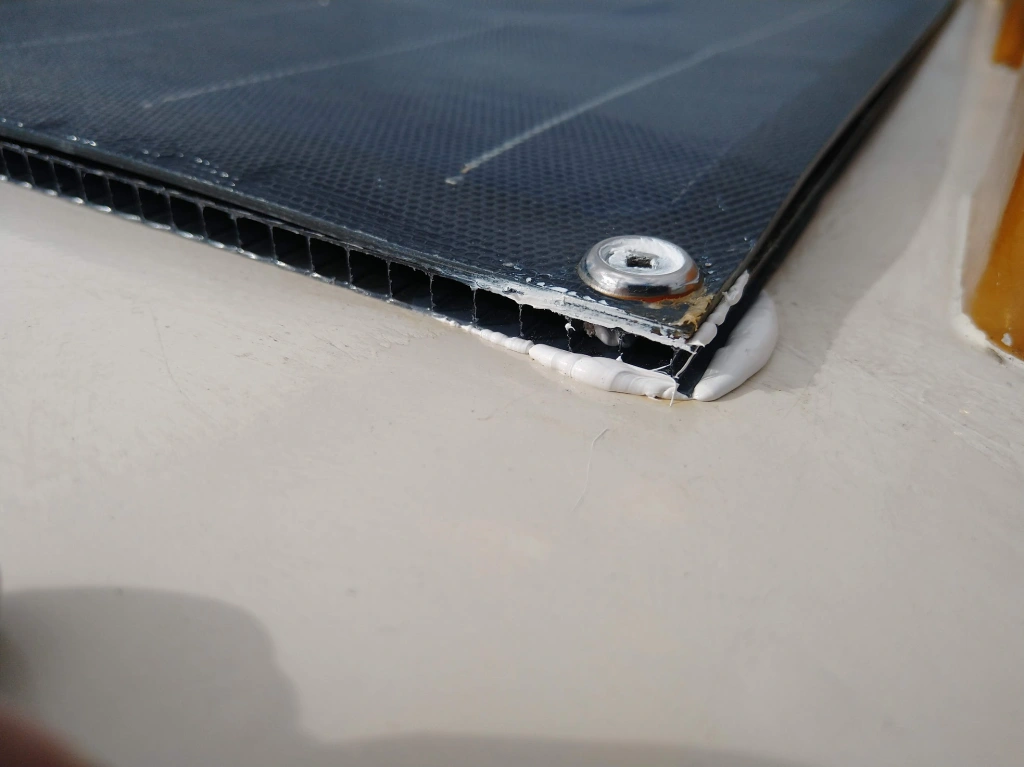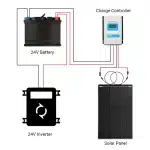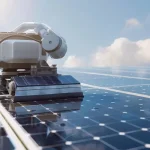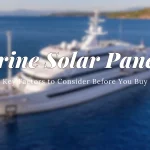Flexible solar panels are increasingly favored for their lightweight, adaptable design, making them ideal for various applications such as RVs, boats, gardens, and lightweight rooftops. Their versatility is matched by their ability to fit on irregular surfaces and their relatively lower cost. However, they also present unique challenges that may impact their performance and lifespan. This article explores common problems with flexible solar panels, such as overheating, durability issues, and hot spots, delving into their underlying causes and offering practical solutions.
What Are Flexible Solar Panels?
Flexible solar panels, are the most affordable solar panels available. If you want to install some solar panels on top of your caravan, on the roof of your shed, in your garden, on your balcony, or on your pergola, this type of solar panel is usually recommended.The reason it is so affordable is because of the manufacturing process. Less material is needed to build a flexible solar panel than a standard solar panel. It is made of a thin photovoltaic material that is submerged in a plastic, glass or metal base. This is a simpler process than the silicon bath and spinning process for monocrystalline solar panels.
The end product is an extremely flexible and versatile product with superior heat resistance to other types of solar panels.They are also much smaller. So if you plan to install some flexible solar panels on your roof, there is no need to use multiple layers to support the added weight.Speaking of layers, the layer in these flexible solar panels has a different configuration than crystalline solar panels.
It uses different materials to fully absorb the light so that it doesn’t lose too much energy when the sun goes down or when it’s cloudy.
All in all, many people face some negatives and problems while using flexible solar panels. However, for every problem there is a solution.
Before we discuss these problems, let’s take a look at why so many people are buying flexible solar panels.
What Are the Benefits of Flexible Solar Panels?
Despite their limitations, flexible solar panels provide significant advantages for specific applications:
Lightweight and Portable: Easy to transport and install, especially in off-grid setups.
Self-Adhesive Installation: Self-adhesive solar panels simplify installation on curved or irregular surfaces.
Versatile Applications: Suitable for RVs, boats, and camping. For instance, a panel solar flexible 100W is perfect for powering small devices and appliances.
Why Do Flexible Solar Panels Overheat?
Reason: Overheating occurs because flexible solar panels are often installed flush against surfaces without proper ventilation. Unlike rigid panels that often have frames to allow airflow, the lack of elevation for flexible panels can trap heat, especially on dark surfaces like RV roofs or boats. This heat buildup decreases panel efficiency and accelerates material degradation.
Solutions:
Enhance Ventilation: Elevate the panels slightly from the surface to allow air to circulate and dissipate heat.
Install Heat-Resistant Materials: Use panels with advanced backsheet designs like honeycomb structures, which minimize heat transfer. For instance, Sungold PA621 panels incorporate such features to reduce overheating.
Choose Reflective Surfaces: Install panels on light-colored or reflective surfaces to reduce heat absorption
Why Do Flexible Solar Panels Have a Shorter Lifespan?
Reason: The lifespan of flexible solar panels is often compromised due to their thinner, more flexible design and absence of protective glass. Constant exposure to UV radiation, bending, and environmental stressors like hail or high winds can cause wear and tear.
Solutions:
Limit Bending: Avoid bending panels beyond their design tolerance, usually capped at 30 degrees, to prevent internal micro-cracks.
Use Durable Materials: Opt for panels coated with UV-resistant ETFE, which offers better protection against sunlight and weather damage.
Regular Maintenance: Periodic cleaning and inspection help detect damage early, extending panel life.
Why Does Delamination Occur in Flexible Solar Panels?
Reason: Delamination is caused by the breakdown of adhesives or layers within the panel, often due to prolonged exposure to UV rays, extreme temperature fluctuations, or moisture ingress. This compromises the panel’s structural integrity and efficiency.
Solutions:
Choose High-Quality Encapsulation: Panels with multi-layer ETFE or weather-resistant coatings are less likely to experience delamination.
Avoid Harsh Environments: Store panels when not in use and install them in less extreme environments whenever possible.
Inspect Regularly: Look for early signs of delamination, such as bubbling or peeling, and address them promptly.
What Causes the Hot Spot Effect in Flexible Solar Panels?
Reason: The hot spot effect arises when parts of the panel are shaded or damaged, causing localized overheating. This can result in permanent damage, reduced output, or even a fire hazard. Flexible solar panels are more susceptible to this issue due to their thinner design and lack of protective layers.
Solutions:
Install Bypass Diodes: These diodes redirect current around the shaded or damaged areas, preventing excessive heating.
Ensure Proper Cleaning: Keep the panel surface free from dirt, debris, or obstructions that might cause shading.
Use Hot Spot Resistant Panels: Sungold panels utilize zero-hot-spot technology to mitigate this issue, even under partial shading conditions.
Why Not Use Flexible Solar Panels for Large-Scale Power?
While flexible solar panels excel in portability and adaptability, they are not the best option for large-scale or high-energy demands. The main reasons include:
Lower Efficiency: Flexible panels often have lower conversion efficiency compared to rigid crystalline panels.
Durability Concerns: The absence of a sturdy frame and thinner materials make them less reliable for long-term use.
Heat Sensitivity: Their tendency to overheat under high loads limits their suitability for intensive applications.
For large-scale projects, traditional rigid panels with better efficiency and structural integrity are recommended.
How to Maximize the Lifespan of Flexible Solar Panels?
To extend the life and improve the performance of flexible solar panels:
Choose High-Quality Products:The first is to purchase a solar panel manufacturer like Sungold that specialises in manufacturing flexible panels. Ensuring high quality flexible panels will ensure that you get the best panels and minimise the possibility of degradation.
Install Properly: Follow manufacturer guidelines to prevent over-bending and ensure proper ventilation.
Maintain Regularly: Clean panels frequently and inspect for signs of damage, such as cracks or delamination
Final thoughts
Flexible solar panels, including popular products like the panel solar flexible 100W, offer an innovative and adaptable solution for renewable energy. While challenges such as overheating, short lifespan, and hot spots exist, these can be mitigated with careful selection, installation, and maintenance practices.
Flexible solar panels have their problems, but that doesn’t mean you shouldn’t buy them. They are very useful and have a wide range of applications. The flexibility and ability to bend means that they can be mounted on curved surfaces, which means that you can use them as a source of power for vehicles such as caravans or even boats. If you want an attractive and flat solar array, you can mount them on your roof. They are also useful when you need lightweight solutions, such as mounting solar installations on plastic awnings and metal overhangs.
For reliable and high-performance flexible solar panel kits, explore Sungold’s range of solutions at Sungold Solar. Make the most of flexible solar technology to power your adventures and off-grid systems efficiently.







